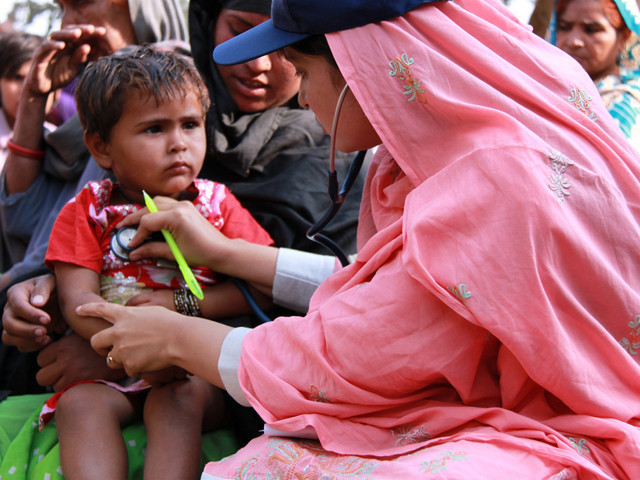Record losses: Poor sanitation costs Pakistan billions
Premature mortality, health issues, cause largest share of losses.

The report, The Economic Impacts of Inadequate Sanitation in Pakistan, is based on evidence of the adverse economic impacts poor sanitation causes, which include costs associated with death and disease, accessing and treating water, and losses in education productivity and time.
The report indicates that the largest share of losses is due to premature mortality and other health-related impacts of poor sanitation which add up to Rs299.6 billion, amounting to 87.2% of the total economic cost. This includes costs related to premature mortality, productivity loss due to illness and the overall cost of treatment.
The water-related economic cost is estimated as Rs16 billion which includes costs related to bottled water, household treatment and pipe-water costs due to sanitation. The report also estimates welfare costs at Rs22.8 billion. The cost for loss of tourism is estimated at Rs5.4 billion.
“The total amount of the losses caused by poor sanitation in Pakistan is 7 times higher than the national health budget and 3.5 times higher than the national education budget, said Rachid Benmessaoud, World Bank Country Director for Pakistan. “These figures have caught the attention of policy-makers and Pakistan has already started the development of federal and provincial policies”.
Health impact
In Pakistan, diarrhoea is the largest contributor to health-related economic impacts resulting from poor sanitation, amounting to almost two-thirds of the total health-related impact. 63% of premature mortality-related economic losses out of the total economic impact are due to deaths and diseases among children under five.
Diarrhoea among children under five accounts for Rs121.5 billion amounting to 40.5% of all health-related economic impacts. This is followed by acute lower respiratory infections, which account for about Rs25.2 billion amounting to 8.4% of all health-related impacts.
Room for improvement
The WSP report underlines that substantial investments are required to improve sanitation. In order to change the dismal situation, sanitation needs to be prioritised at all administrative levels—local, provincial, and national—and investments should be made to build moderately improved and hygienic latrines in both urban and rural areas. These investments could include increased sanitation coverage, which has already been highlighted in various government policies. This rising trend in the government’s budgetary allocation to sanitation indicates a strong commitment to improve outcomes.
The report also shows that sanitation and hygiene-related improvements will reduce premature deaths, limit domestic water-related costs, reduce absenteeism at schools and workplaces, and improve welfare and productivity. The potential gain for Pakistan of about
Rs140 billion is expected as a result of comprehensive efforts to improve the level of sanitation, the report estimates.
Published in The Express Tribune, April 13th, 2012.



















COMMENTS
Comments are moderated and generally will be posted if they are on-topic and not abusive.
For more information, please see our Comments FAQ